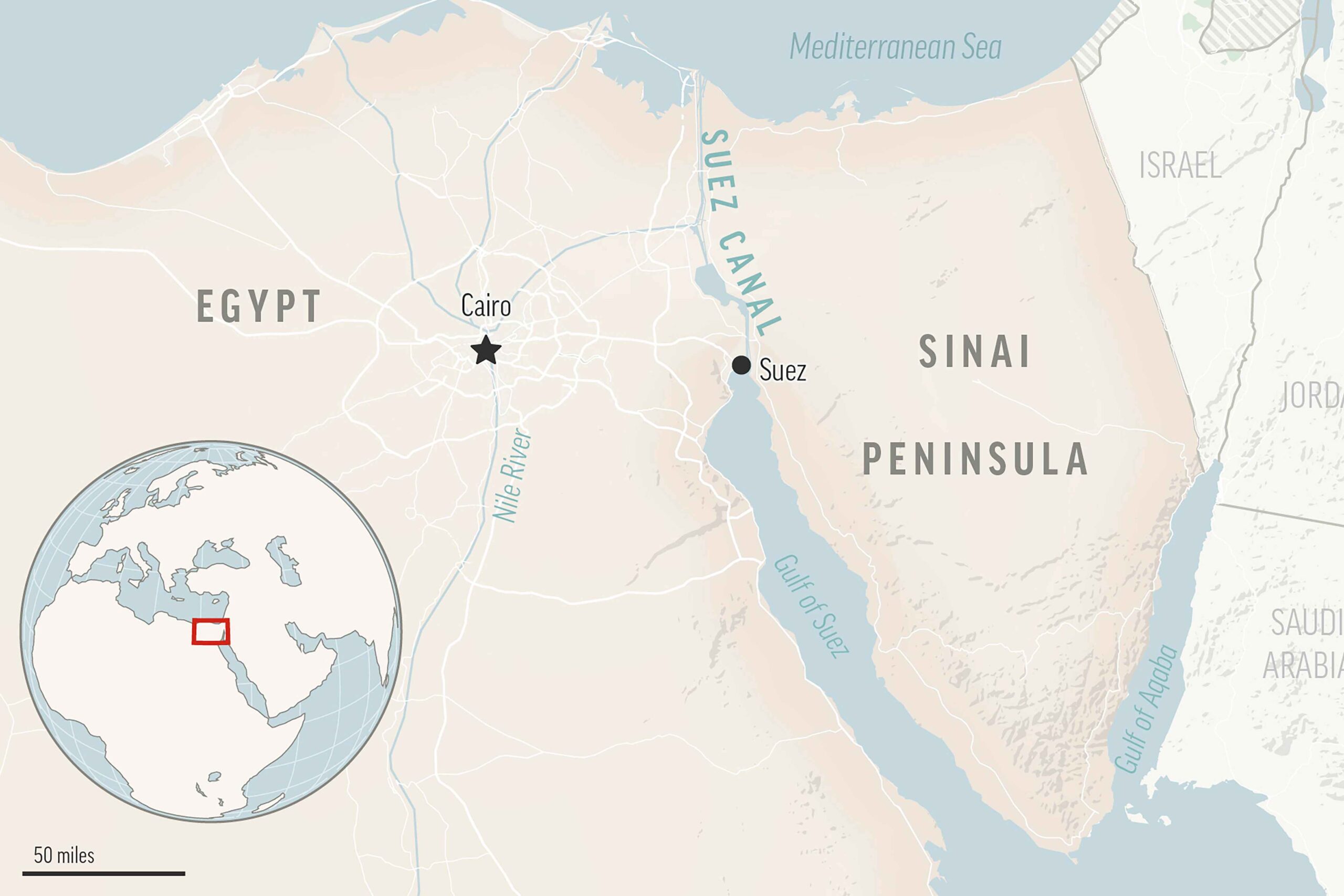A leaked internal document from the Israeli Intelligence Ministry has exposed a classified proposal to forcibly and permanently relocate 2.3 million Palestinians from Gaza into Egypt’s Sinai Peninsula, followed by a mass exporting of migrants to Europe and North America. The wartime strategy document, which Israel has downplayed as “hypothetical” since it began circulating on Monday, has drawn widespread condemnation while also ratcheting up tensions between Israel and Egypt.

In the October 13 document verified and circulated by Wikileaks and first reported on by Tel Aviv-based +972 Magazine, Israel’s Ministry of Intelligence presented the government with three options regarding the handling of Gaza’s Palestinian population. As +972 indicated, the Intelligence Ministry is not directly responsible for any intelligence agencies but rather makes non-binding policy proposals for various government branches.
BREAKING: Leaked document from Israel's Intelligence Ministry exposes plan to force transfer of Gaza population to Egypt
The report, dated October 13, 2023, outlines a plan for mass displacement "to effect a significant change in the civilian reality in the Gaza Strip in light… pic.twitter.com/45IkQfFqoQ
According to the policy paper, the Israeli government was presented with three options: leaving Gaza’s population in place under Palestinian Authority rule, leaving the population in place under local Arab rule, and evacuating the civilian population from Gaza to Sinai.
(RELATED: The Latest Updates from the Israel-Hamas War)
The plan for “Alternative C”—the ministry’s preferred option—begins with the forcible removal of more than 2.3 million Gazans into the Sinai Peninsula during the war against Hamas. As the proposal reads:
In the first phase, tent cities will be established in the Sinai area. Later, the creation of a humanitarian corridor to aid the civilian population of Gaza and the construction of cities in the resettled area in North Sinai.
A sterile zone of several kilometers should be created inside Egypt and the population should not be allowed to return to activity/residence near the Israeli border and this is in addition to creating a security perimeter in our territory near the border with Egypt.
Once these more permanent cities are constructed, a slower relocation process would begin shipping Palestinians to locations all around the world—including Europe and North America.

Operational notes provided for the plan go on to describe the benefits of the relocation, including allowing the Israel Defense Force to conduct easier ground maneuvers in previously inhabited areas. Provided southbound traffic lanes remain open to allow evacuees to cross the Rafah border into Egypt, the Intelligence Ministry believes this option will facilitate Israel’s military campaign while also allowing it to retain “international legitimacy” by limiting civilian casualties.
As the document explains, these are natural and necessary steps.
Massive migration from combat zones (Syria, Afghanistan, Ukraine) and population movement is a natural and necessary result in light of the dangers involved in remaining in the combat zone.
As legal justification, the ministry cites the United States relocating civilian populations in Iraq in 2002 and highlights Egypt’s obligation under international law to grant passage to the displaced population, allowing them to be “integrated into a state framework with citizenship.”
The relocation also necessitates ideological changes throughout all affected populations, but “Israel will not have the ability to control the program” in Sinai “since it takes place outside its territory.” The first two proposals, however, would allow Israel to “instill a sense of failure among the population,” which will “help create an improved security reality for many years and discourage the population.”

While this proposal seems radical, nigh on impossible, the Israeli government has entertained and even executed similar plans in the past. In 2018, for example, Israeli Prime Minister Benjamin Netanyahu reached a deal with the United Nations to deport at least 16,250 West African migrants and resettle them in Canada, Italy, and Germany. The plan was eventually scrapped, but comparable actions were taken after violent groups of rival Eritreans rioted in Tel Aviv last month.
The Intelligence Ministry document also includes a series of appendices identifying “countries and entities that can contribute to the solution of the humanitarian crisis in Gaza.” Foremost among them is, predictably, the United States. The ministry’s assessment is that the US will “promote the initiative in front of many countries including exerting pressure on Egypt, Turkey, Qatar, Saudi Arabia and the Emirates to contribute to the initiative or with resources or the absorption of displaced persons.” Regarding America’s incentive to get involved:
Interest in a clear Israeli victory and restoring the deterrence of the entire West that was damaged due to the attack on Israel. Restoration of its position as a world leader and a key country for solving crises. Interest in creating a significant regional change and giving a blow to the radical axis.
Egypt, Saudi Arabia, and other Islamic nations are expected to comply with pressure from the US and accept their fellow Muslims in need. This would run contrary to previous statements made by the governments of Egypt and Jordan, both of which have unequivocally refused to accept so much as a single Palestinian refugee despite their shared faith. However, if the US were to launch a pressure campaign against them on Israel’s behalf, those policies may be reconsidered.
Other targets for the effort include European and Mediterranean countries—Greece and Spain are mentioned by name—Muslim-majority North African countries like Morocco and Libya, and Canada, which is described as having a “permissive immigration policy.”
Another key component of the plan is recruiting large advertising agencies to “promote the program in the Western world and the effort to solve the crisis in a way that does not incite and vilify Israel.” These agencies would also reach the Gazan population directly.
Dedicated campaigns for the residents of Gaza themselves to motivate them to agree to the plan – the messages should revolve around the loss of the land, that is, to make it clear that there is no longer any hope of returning to the territories that Israel will occupy in the near future, whether this is true or not. The picture should be ‘Allah saw to it that you lost this land because of the leadership of Hamas – you have no choice but to move to another place with the help of your Muslim brothers.’
The Israeli Ministry of Intelligence’s full report (translated by Valuetainment) can be read below (relevant passages begin on pg. 12).
Israel-Intelligence-Ministry-Leaked-Deportation-PlanDownload
Following the circulation of the document, Prime Minister Netanyahu’s office did not deny its validity, instead downplaying it as a hypothetical exercise, described as a “concept paper.” However, reactions of hostility have still arisen from Palestine and neighboring countries, Egypt included. “We are against transfer to any place, in any form, and we consider it a red line that we will not allow to be crossed,” said Palestinian spokesman Nabil Abu Rudeineh on behalf of President Mahmoud Abbas.
While Egypt has not issued a statement, sources indicate that the Egyptian government has long feared this eventuality and is unlikely to cooperate.

The leaking of the policy document coincided with an escalation of Israel’s ground campaign in Gaza, which sparked massive pro-Palestine rallies around the world. Crowds consisting of thousands of demonstrators—many of them Palestinian and Arab immigrants—took to the streets in London, Rome, Paris, Montreal, and New York, as well as hundreds of locations in the developing world.
Other acts of escalating anti-Israel hostility included a mob storming an airport in Dagestan, a Muslim republic of the Russian Federation, in search of Jews on a plane from Tel Aviv.
In light of the most recent data showing that 53 percent (and counting) of the Palestinian population backs Hamas as the rightful leader of the region, the prospect of flooding the Western world with 2.3 million additional refugees poses a significant problem for the key “supporters” Israel has identified.


















Add comment